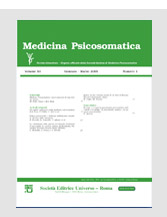Introduzione
La malattia di Peyronie (PD) è un processo infiammatorio della tunica albuginea che produce placche fibrocalcifiche sul corpo cavernoso, disfunzione erettile e disagio psicologico nel 77 % dei casi.
Scopo
Sono stati decritti la gravità del disagio e gli effetti della psicoterapia cognitiva comportamentale a breve termine (REBT).
Metodi
Sono stati sottoposti allo studio due gruppi di 42 soggetti, di età compresa tra 35-72 (SD 11,47) con PD. Solo il primo gruppo è stato indirizzato alla psicoterapia REBT. Nel campione randomizzato, con un rapporto 1:1 (buste chiuse ), sono stati studiati e valutati il disagio psicologico con il Minesota Multiphasic Personality Inventory 2, il disagio sessuale con l’Indice di soddisfazione sessuale e l’International Index of Erectile Function ed il dolore al pene con West Haven Yale Multidimensional Pain Inventory. Le scale tra i pazienti REBT e non REBT sono stati correlate con i test t , W ed F.
Risultati
Il 42.10 % dei pazienti REBT ha mostrato un miglioramento del disagio dopo un follow-up di12 mesi. Le correlazioni t, W ed F sono state significative (0,00002 < p < 0,0025). Le valutazioni cliniche sono state: ARR (63,26%), ARP (52,21%), AR (71%) e NNT (1,58).
Discussione
I pazienti hanno evidenziato ansia, depressione, perdita di autostima, infelicità ed eccessiva preoccupazione per la loro salute. La REBT ha modificato pensieri e sensazioni legate all’evento PD come il disagio attuale, la funzione del soggetto nella sua famiglia ed il rapporto di coppia. L’analisi ha ridotto il valore simbolico dell’atto sessuale e spostato l’attenzione dall’ansia, relativa alle prestazioni sessuali, alla speranza della terapia che è in grado di offrire miglioramenti progressivi.
Conclusioni
La REBT aiuta i pazienti quando i miglioramenti fisici legati alla terapia farmacologica non sono ancora evidenti.
Introduction
Peyronie’s disease (PD) is an inflammatory process of the tunica albuginea that produces fibrocalcific plaques on corpus cavernosum, erectile dysfunction and discomfort in 77% of cases.
Purpose
The severity of discomfort and benefits of short-term rational emotive behavior psychotherapy (REBT) are described.
Methods
Two groups of 42 subjects, aged 35-72 (SD 11.47) with PD were enrolled and only the first group was addressed to Rational emotive behaviour therapy (REBT). In random sample, with a 1:1 ratio (sealed envelopes), the psychological distress by Minesota Multiphasic Personality Inventory 2 (MMMPI-2), the sexual discomfort by Index of Sexual Satisfaction (ISS) and by International Index of Erectile Function
(IIEF) and the penile pain by West Haven-Yale Multidimensional Pain Inventory (WHYMPI) were studied and considered as end points of outcome. Stairs were correlated by t, W and F tests.
Result
42.10 % of REBT patient showed an improvement of discomfort, after 12 months follow-up. Correlations of t, W and F test are significant (0.00002 < p < 0.0025). Clinical appraisals were ARR (63,26%), ARP (52,21%), AR (71%) and NNT (1,58).
Discussion
Patients revealed anxiety, depression, loss of selfesteem, unhappiness and excessive concern for their health, due to the disease. REBT modified thoughts and feelings connected to PD event as the current discomfort, the function of the subject in his family, the contract of couple, the onset of the crisis. The emotional analysis reduced the symbolic value of sexual act and moved the attention from anxiety, related to sexual performance, to the therapeutic hope that is able to offer progressive improvements.
Conclusions
REBT helps patients when physical improvements
related to the pharmacological therapy are still neglected.

